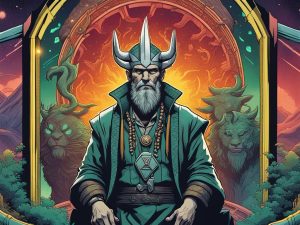The Dangers of AI-Generated Guidebooks: A Cautionary Tale
Experts are warning crypto readers about the potential deadly consequences of blindly trusting guidebooks created by artificial intelligence. From cookbooks to travel guides, human authors are cautioning readers that AI-generated advice could lead them astray. The New York Mycological Society recently raised concerns about foraging books created using generative AI tools like ChatGPT. These books, which mimic patterns typical of AI text, contain inaccuracies and pose dangers to novice foragers who cannot distinguish reliable information from unsafe advice. This is not the first instance of AI spreading misinformation or dangerous recommendations. A recent study found that people are more likely to believe disinformation generated by AI than falsehoods created by humans. It is crucial to exercise caution when relying on AI and not outsource our judgment entirely to machines.
Key Points:
- AI-generated guidebooks, including foraging and identification books, are flooding retail outlets like Amazon.
- These books, often written by non-existent authors, contain inaccuracies and mimic AI text patterns.
- Novice foragers are at risk of consuming poisonous mushrooms due to misleading descriptions in AI-generated books.
- AI can easily spread misinformation and dangerous advice if not properly monitored.
- AI-powered disinformation can be indistinguishable from organic text, making it difficult for people to discern the source.
Hot Take:
While AI can augment human capabilities in many ways, we must exercise caution and not blindly trust AI-generated content. AI lacks the wisdom and accountability that comes with lived experience. Society cannot afford to outsource its judgment entirely to machines. AI has its limitations and can easily spread misinformation if not properly monitored. It is crucial to verify information from trustworthy sources and not solely rely on AI-generated guidebooks.





 By
By
 By
By
 By
By
 By
By

 By
By